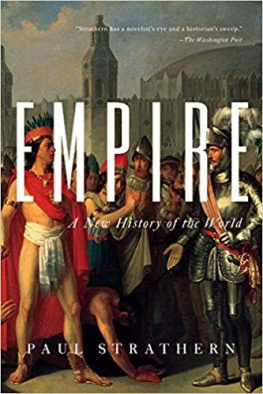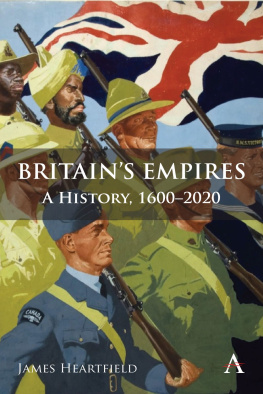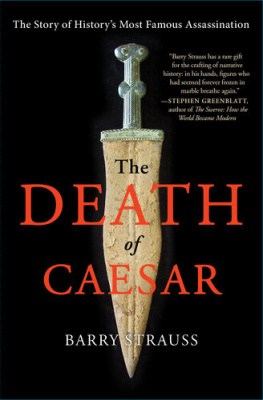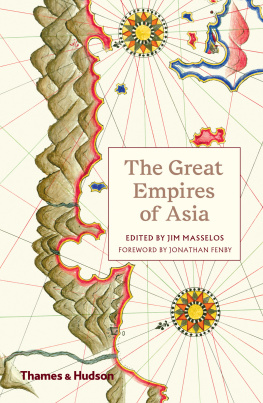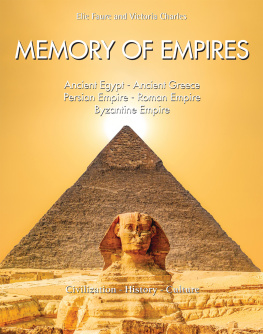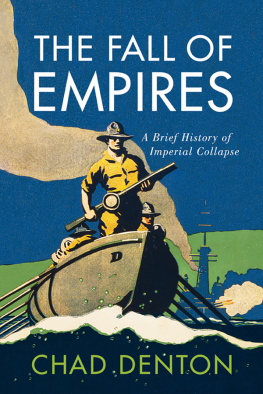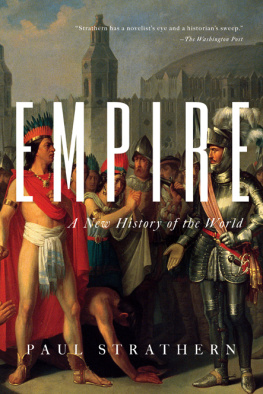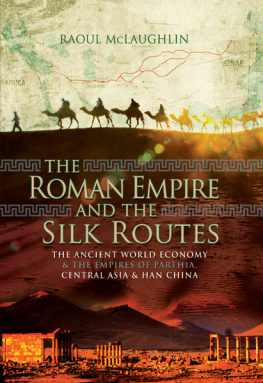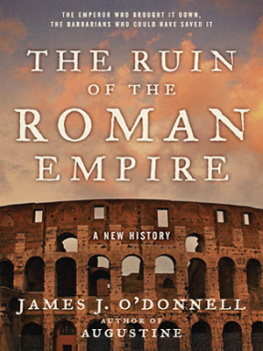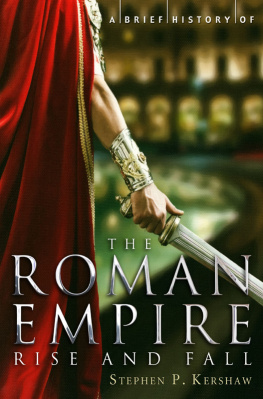Introductio n
There is so much history to the world. However, in this book we cover the extensive past of three huge and great empires. Those include the Roman Empire, the Persian Empire, and the Mongol Empire. All three had great rises, and then had great falls, one shorter than the other. One was outlived while another is known as the greatest of all empires. Which one is which? Read on to find out and grow your knowledge on the rich past of all three empires.
Copyright 2014 by ______________________ - All rights reserved.
This document is geared towards providing exact and reliable information in
regards to the topic and issue covered. The publication is sold with the idea that
the publisher is not required to render accounting, officially permitted, or
otherwise, qualified services. If advice is necessary, legal or professional, a
practiced individual in the profession should be ordered.
- From a Declaration of Principles which was accepted and approved equally by a
Committee of the American Bar Association and a Committee of Publishers and
Associations.
In no way is it legal to reproduce, duplicate, or transmit any part of this document in either electronic means or in printed format. Recording of this publication is strictly prohibited and any storage of this document is not allowed unless with written permission from the publisher. All rights reserved.
The information provided herein is stated to be truthful and consistent, in that any liability, in terms of inattention or otherwise, by any usage or abuse of any policies, processes, or directions contained within is the solitary and utter responsibility of the recipient reader. Under no circumstances will any legal responsibility or blame be held against the publisher for any reparation, damages, or monetary loss due to the information herein, either directly or indirectly.
Respective authors own all copyrights not held by the publisher.
The information herein is offered for informational purposes solely, and is universal as so. The presentation of the information is without contract or any type of guarantee assurance. The trademarks that are used are without any consent, and the publication of the trademark is without permission or backing by the trademark owner. All trademarks and brands within this book are for clarifying purposes only and are the owned by the owners themselves, not affiliated with this document.
Chapter 1: The Roman Empire
The Roman Empire s beginning is embroiled in many myths. There are traces that have been found by different archaeologists. This evidence shows evidence of early settlements that began on Palatine Hill and dated all the way back to 750 BC. This evidence also ties in closely to the established statement of Rome beginning founded on April 21, 753 BC. This was traditionally celebrated with the festival of Parilia in Rome. In this chapter, you are going to dive into the rich history of the Roman Empire. From kings to major events, you will find out how the Roman Empire was built up and then how it met its fall.
Roman History Timeline
| 753 BC | This is the year in which Rome was founded by Romulus and Remus. |
| 753 - 509 BC | This is considered to be the time of the kings. |
| 509 BC | Rome then became a republic by overthrowing the king. (Tarquin the Proud) |
| 494 BC | This is the year of the Revolt of Plebeians against Patricians. Plebeians gave the right to choose tribunes and have a voice inside the government. |
| 458 BC | General Cincinnatus was brought out of retirement and took a position of a dictator in order to save Rome. As soon as he had won the battles, he then returned to Rome. He resigned and went back to his fields. |
| 451 BC | The first law code was developed in Rome. It was called the Twelve Tables. |
| 390 BC | Gauls invaded Rome. |
| 312 BC | The first aqueduct and the first major road was started. |
| 340 - 338 BC | Rome had defeated the Latin League. |
| 275 BC | Rome had control of the Italian peninsula. |
| 264 - 241 BC | This was the years of the first war between Carthage and Rome . It was called the First Punic War. |
| 218 - 201 BC | This was the years of the second war with Carthage. It was called the Second Punic War and is was with Hannibal as the leader in the Carthage army. |
| 202 BC | The Romans defeated Hannibal in the battle of Zama. |
| 200 BC | Concrete was used for the first time in the Roman town called Palestrina. |
| 149 - 146 BC | This was the years of the Third Punic War. |
| 89 BC | The Roman citizenship was then extended to Italian and Latin allies. |
| 85 BC | This year was the year in which the heating system that was known as the hypocaust was used in order to spread heat to most of the public baths. |
| 73 - 71 BC | This was the years of the Slave revolt that was led by Spartacus, a gladiator. |
| 67 BC | The Mediterranean sea was eradicated of pirates by Pompey. |
| 60 BC | Crassus, Pompey, and Julius Caesar formed an alliance that was known as First Triumvirate. |
| 58 - 51 BC | Baul was conquered by Julius Caesar and is known today by the name of France. |
| 55 - 54 BC | Britain was attacked by Julius Caesar. |
49 BC | Julius Caesar gave the order to disband the army instead of beginning a civil war. |
| 49 - 45 BC | These were the years of the civil war. Julius Caesar won the war. |
| 44 BC | On March 15th of this year, Julius Caesar was assassinated on the Ides. |
| 44 - 30 BC | A civil war began between Octavian and Marcus Antony |
| 42 BC | The argument that taxes on rich women were unfair. Hortensia was the woman to begin this argument. |
| 31 BC | Cleopatra and Marcus Antony were defeated during the battle of Actium. |
| 30 BC | Cleopatra and Marcus Antony escaped into Egypt. They then committed suicide. |
| 27 BC | Octavian claimed the title of Augustus with the beginning of the Empire age. He assumes all of the power of magistrates inside the Roman government. It began the Pax Romana, which is translated to Peace of Rome. |
| 6 AD | Vigils were developed in order to protect and fight the fires in the city of Rome under the leader Augustus. |
| 19 AD | Pont du Guard aqueduct was built in Gaul. It still stands today in France. |
| 30 AD | Jesus Christ was crucified in Jerusalem. |
| 64 AD | Christians were blamed for starting the Great Fire by Nero. It began the persecution of all Christians. |
| 66 - 73 AD | The Jewish revolt began. |
| 69 - 96 AD | This marked the Flavian period. |
| 79 AD | Vesuvius began to bury the towns of Pompeii and Herculaneum. |
| 80 AD | The Colosseum was finished. |
| 121 - 126 AD | The Hadrians wall was built in Britain. |
| 130 AD | Hadrian had ordered the building of the Pantheon located in Rome. |
| 96 - 138 | The Empire had reached its greatest extent under the Emperors Trajan (96 to 117) and Hadrian (117 to 138). |


